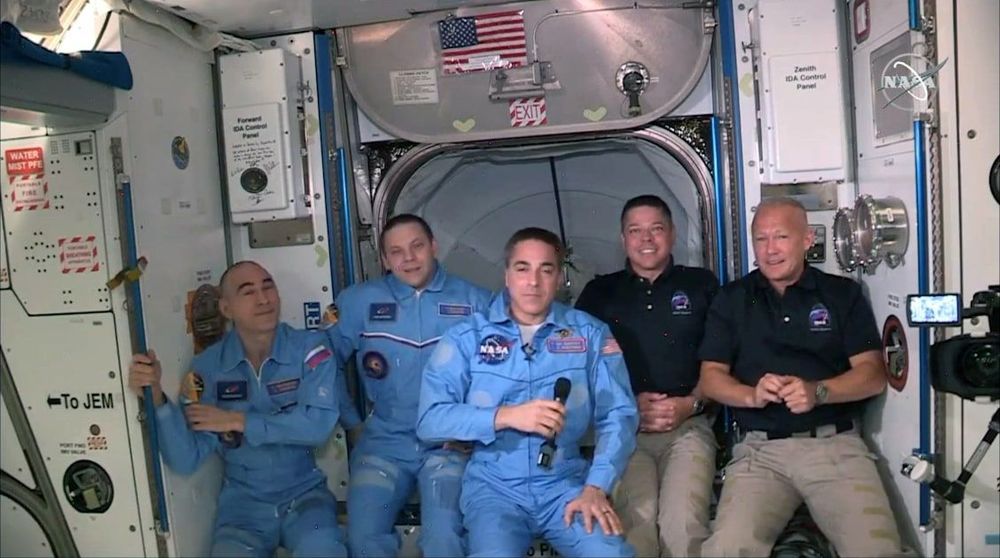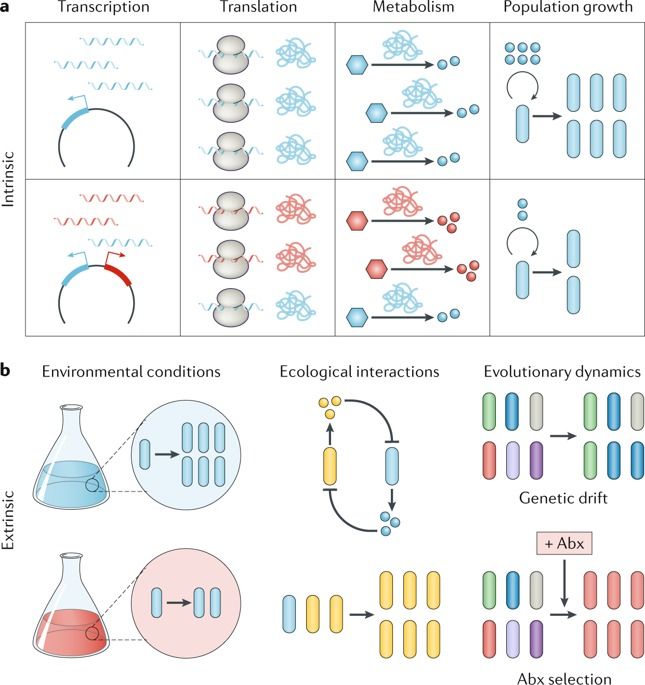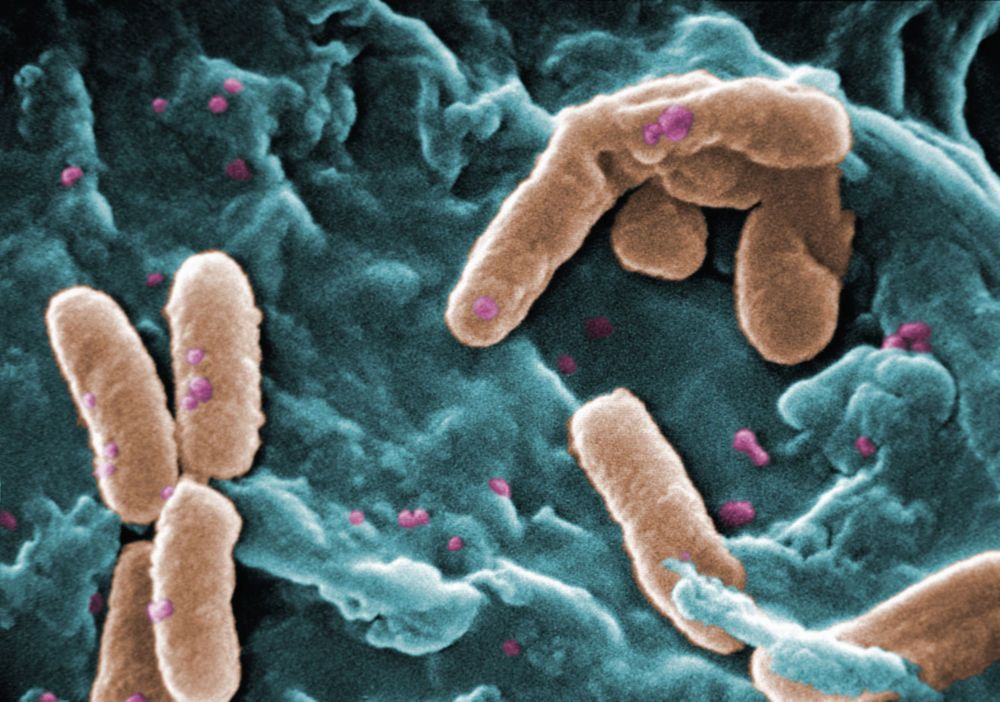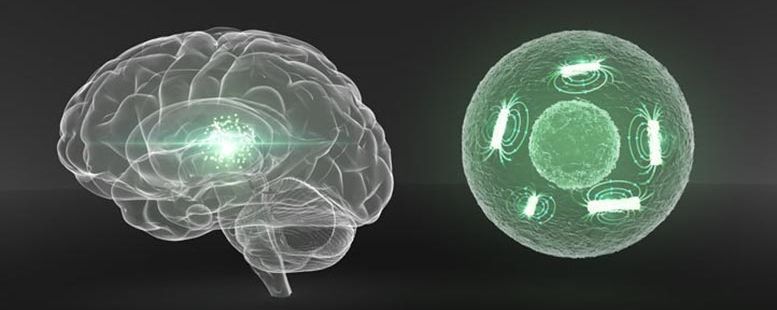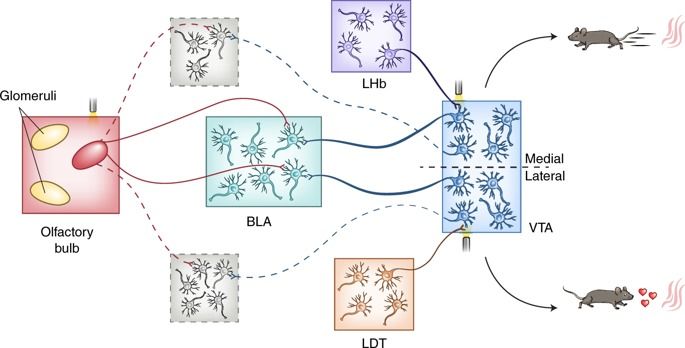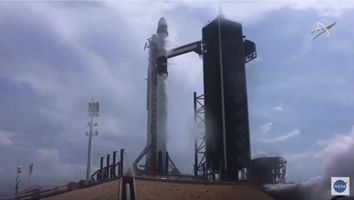Page 6473
Jun 1, 2020
SpaceX’s pioneering astronauts board the International Space Station
Posted by Genevieve Klien in categories: business, Elon Musk, space travel
Following a dramatic launch, 19-hour voyage and successful docking procedure, pioneering astronauts Robert Behnken and Douglas Hurley have left the Crew Dragon and are now aboard the International Space Station (ISS). The pair emerged from the Crew Dragon capsule at around 1:15 PM ET and were greeted with bear hugs by astronaut Christopher Cassidy and cosmonauts Anatoli Ivanshin and Ivan Vagner. While describing the ride as less smooth than the space shuttle, Hurley said he “couldn’t be happier” about the Crew Dragon’s performance.
The astronauts, who christened the Crew Dragon “Endeavor,” chatted with NASA executives after their arrival. “It’s great to get the United States back in the crewed launch business,” said Hurley. “And we’re just really glad to be onboard this magnificent complex.” Earlier, SpaceX founder Elon Musk said he was “quite overcome with emotion,” adding “this is hopefully the first step on a journey towards civilization on Mars.”
Jun 1, 2020
Predictive biology: modelling, understanding and harnessing microbial complexity
Posted by Genevieve Klien in categories: biological, engineering, physics
Predictive biology is the next great chapter in synthetic and systems biology, particularly for microorganisms. Tasks that once seemed infeasible are increasingly being realized such as designing and implementing intricate synthetic gene circuits that perform complex sensing and actuation functions, and assembling multi-species bacterial communities with specific, predefined compositions. These achievements have been made possible by the integration of diverse expertise across biology, physics and engineering, resulting in an emerging, quantitative understanding of biological design. As ever-expanding multi-omic data sets become available, their potential utility in transforming theory into practice remains firmly rooted in the underlying quantitative principles that govern biological systems. In this Review, we discuss key areas of predictive biology that are of growing interest to microbiology, the challenges associated with the innate complexity of microorganisms and the value of quantitative methods in making microbiology more predictable.
Jun 1, 2020
New Recombineering Method May Overcome Key Obstacle in Genetically Engineering Bacteria
Posted by Genevieve Klien in categories: bioengineering, genetics
New genetic engineering method promises to super-charge recombineering and open the bacterial world at large to this underutilized approach.
Jun 1, 2020
Iron Nanorobots Go Undercover to Track Living Cells Inside the Body
Posted by Genevieve Klien in categories: biotech/medical, nanotechnology
Customizable magnetic iron nanowires pinpoint and track the movements of target cells.
Living cells inside the body could be placed under surveillance—their location and migration noninvasively tracked in real time over many days—using a new method developed by researchers at KAUST.
The technique uses magnetic core-shell iron nanowires as nontoxic contrast agents, which can be implanted into live cells, lighting up those cells’ location inside a living organism when scanned by magnetic resonance imaging (MRI). The technique could have applications ranging from studying and treating cancer to tracking live-cell medical treatments, such as stem cell therapies.
Jun 1, 2020
Memories light the corners of my mind
Posted by Genevieve Klien in category: neuroscience
Using light-activated ion channels to stimulate sensory and motivational pathways, Vetere and colleagues constructed fully artificial memories in mice. Mice preferred or avoided an odor they had never smelled before, depending on the pattern of stimulation.
Jun 1, 2020
Evidence of New X17 Particle Reported, but Scientists Are Wary
Posted by Quinn Sena in categories: cosmology, particle physics
The Dark matter engine is the key to the extreme acceleration capabilities of the modern space ship. Invented by Professor Hubert J. Farnsworth, the engines on the Planet Express ship harness the power created by burning dark matter in large furnaces, channels it through an afterburner that gives 200% fuel efficiency and propelles the ship through space fast enough to cover the whole universe in a matter of days.
How it works Edit
Let’s look at the real universe example of Rigel, a star in Orion’s Belt approximately 900 light-years away from Earth. This means that even traveling at the speed of light (300,000 km/s) it would take 900 years to get there. Traveling at 9 times the speed of light (2,700,000 km/s) it would take 100 years to get there and at 100 times the speed of light (30,000,000 km/s) it would take nine years. Albert Einstein’s famous statements that it would be mathematically impossible to travel faster than light seem to have held up through out the 3rd millennia and although in 2208 the scientific community allegedly raised the speed of light so that they could go faster, the problem that one cannot go faster than the speed of light remains.
Jun 1, 2020
100-Year-Old Physics Problem Finally Solved – Accurately Predicts Transmission of Infectious Diseases
Posted by Quinn Sena in categories: biotech/medical, computing, information science, mathematics
A Bristol academic has achieved a milestone in statistical/mathematical physics by solving a 100-year-old physics problem – the discrete diffusion equation in finite space.
The long-sought-after solution could be used to accurately predict encounter and transmission probability between individuals in a closed environment, without the need for time-consuming computer simulations.
In his paper, published in Physical Review X, Dr. Luca Giuggioli from the Department of Engineering Mathematics at the University of Bristol describes how to analytically calculate the probability of occupation (in discrete time and discrete space) of a diffusing particle or entity in a confined space – something that until now was only possible computationally.

